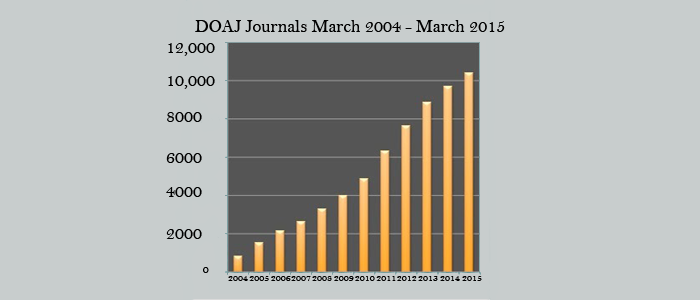
Wellcome Trust to launch open access research site
One of the world’s largest research charities is to launch an open access platform to allow its grant winners to publish their scientific outputs.
The Wellcome Trust, the world’s second largest charitable foundation, will open the new publishing platform, Wellcome Open Research, from this autumn, it announced on 6 July.
The new publishing outlet will mean that research outputs will become available faster and in ways that support reproducibility and transparency, the London-based biomedical research charity said.
Wellcome-funded researchers will also be able to rapidly publish a wide variety of outputs from standard research articles and data sets through to null and negative results, it added.
The platform’s model of immediate publication followed by “transparent invited peer review”, with inclusion of supporting data, will enable researchers to reanalyse, replicate and reuse data, thereby improving the reliability of research published, the charity also said.
Robert Kiley, Wellcome’s head of digital service, commented that one of the long-term aims of the platform was to “start a shift in research and researcher assessment away from journal-based measures and towards direct assessment of the output itself, whether it be an article, or in another form such as a dataset or software tool”.
“This model shifts towards wholly open research publishing, and will bring benefits to researchers and institutions, as well as to society more broadly,” he added.
The launch of the new site follows criticism of big publishers by the trust, which has an £18 billion endowment, over claims that they had failed to make Wellcome-funded research available in open access repositories.
Elsevier and Wiley were singled out for regularly failing to put papers in the right open access repository and properly attributing them with a creative commons licence, with Wellcome threatening to withdraw the funds used by researchers to publish in certain types of journal if the practice continued.
Under the new arrangement, articles uploaded to Wellcome Open Research that pass peer review will then be indexed in major bibliographic databases and deposited in the open access repositories PubMed Central and Europe PMC.
Wellcome Open Research will disseminate results almost immediately, ensuring critical advances in urgent areas of research are not held up by lengthy journal processes, the charity said.
This transparent peer review process will encourage constructive feedback from experts focused on helping the authors improve their work, rather than on making an editorial decision to accept or reject an article, it added.
Rebecca Lawrence, managing director of F1000, which has developed the new platform, said that it would be a “publishing model that truly focuses on serving authors and their associated research communities, removing many of the problematic barriers faced during the traditional publishing process”. Source Times Higher Education

Jisc/RLUK study charts sector’s shift towards making research freely available online
Nearly two-thirds of UK researchers support the abolition of journal subscription fees and a move to open access, according to a major study.
A survey of 6,679 academics commissioned by Jisc and Research Libraries UK found that 64 per cent of respondents supported making all academic research freely available, but also found significant differences of opinion by discipline.
Nearly eight out of 10 scholars in medicine and veterinary science backed open access, compared with fewer than half of those working in the arts and humanities.
The survey conducted last autumn is the second of its kind, following a similar study conducted in 2012, and charts how scholarly practice is evolving.
Nearly 40 per cent of respondents to the latest survey said that whether a journal made its articles freely available via the internet was a very important factor in choosing where to publish, compared with around 30 per cent three years ago, although a publication’s readership and reputation remained the key issues.
Thirty-nine per cent of academics said that circulating pre-print versions of research was an important way for them to communicate their findings, compared with 32 per cent in 2012, and one in five believed that academic publishers had been “rendered less important” by scholars’ “increasing ability to share…work directly with peers online”, up six percentage points.
Martin Paul Eve, professor of literature, technology and publishing at Birkbeck, University of London, and founder of the Open Library of the Humanities, said the survey confirmed “what many have been saying anecdotally for years”.
“The ability to disseminate research material online to anyone with internet access, without the reader bearing the cost, is becoming more and more important to researchers from across a broad set of disciplines,” Professor Eve said.
The survey suggests that academics’ relationships with their university libraries are changing as a result of the shift to online publishing.
A quarter of respondents strongly agreed that the role of librarians at their institution was becoming “much less important”, and 15 per cent felt that money spent on library buildings and staff should be redirected to other priorities, with scientists being most likely to give these answers.
However, others reported a growing role for librarians in finding, storing and disseminating research electronically.
Seven out of 10 academics said that they would be happy with their library cancelling its subscription to the print edition of a journal, provided that the electronic version was available, and six out of 10 said they were completely comfortable with journals ceasing production of print editions.
However, the majority of academics continued to prefer printed monographs to e-books and there was a significant increase compared with three years ago in the perceived ease of using print formats for many activities, such as reading in depth and comparing ideas, relative to electronic alternatives.
Paul Feldman, Jisc’s chief executive, said the survey confirmed “that research practice is evolving and academics are embracing this change”.
Asked about their research more broadly, 41 per cent of respondents said that they shaped their research outputs and publication choices to match perceived criteria for success in recruitment and promotion processes, compared with only 25 per cent in 2012. Source Times Higher Education

All publicly-funded research to be fully accessible by 2020.
The European Competitiveness Council has announced that all publicly-funded scientific papers should be available on fully open access platforms by 2020. The council, which is chaired by the Netherlands State secretary for Education, Culture and Science and brings together ministers of science, innovation, trade and industry from the EU member states, made the announcement after a 2 day meeting in Brussels.
The EU Commissioner for science and innovation, Carlos Moedas, called the announcement a ‘life-changing’ move, as reported by Martin Enserink in The Science Magazine.
The council members reached this decision unanimously, according to a press release by the Dutch government. Mr. Sander Dekker, the council president, stated that ‘Europe must be as attractive as possible for researchers and start-ups to locate here and for companies to invest. That calls for knowledge to be freely shared. The time for talking about open access is now past. With these agreements, we are going to achieve it in practice.’
The announcement has already been endorsed by some leading open access advocates. A statement released by the League of European Research Universities (LERU) states that ‘the council’s conclusions on open science will help to create a new culture for undertaking and disseminating the results of research in the 21st century. The conclusions are appropriate and targeted, and embrace a wide range of issues which are of importance to society in the new century.’
Unanimous support
Full implementation of this ambitious plan within a short period of time – less than 4 years – may be difficult, however, and skeptics are already airing their concerns. Nonetheless, Carlos Moedas has affirmed that the EU Commission is totally committed to its implementation. The unanimous support the plan received from council members should serve as testimony to the level of political commitment there is for open access.
Policy documents previously released by the EU have demanded that all research funded by the Horizon 2020 initiative should be made open access by publishing in open journals and placing them in freely accessible repositories. However, there are no proper verification mechanisms in place to know whether researchers are complying with these policies.
References:
Enserink, M. (2016). In dramatic statement, European leaders call for ‘immediate’ open access to all scientific papers by 2020 Science DOI: 10.1126/science.aag0577
EU2016- All European scientific research to be freely accessible by 2020 (Press release)
LERU – The Dutch Presidency rises to the occasion: 15 Council conclusions that will set the way forward for R&I in the European Union (Press Release)

The Directory of Open Access Journals (DOAJ), a leading open access journals’ index, has decided to tighten the standards for journals’ acceptance, in order to rule out dubious and inactive publishers.
Functioning on a voluntary basis, DOAJ is a community-curated list of peer-reviewed open access journals. In the past few years, the number of journals indexed at DOAJ grew almost exponentially, (see graph) from the initial 300 journals listed in 2003, to around 11,000 journals in the beginning of 2016.
Escaping predators
However, this growing trend flipped in the last six months, after the removal of around one-third of DOAJ’s indexed journals. The DOAJ started a ‘quality-check’ process in 2014, after facing harsh criticism for listing several predatory publishers– collecting article processing fees (APCs) while offering low quality journals, mostly without undergoing (rigorous) peer review processes.
Every publisher listed at the DOAJ was asked to resubmit their journals’ applications, which were then evaluated on the basis of more strict criteria. Lars Bjørnshauge, DOAJ’s managing director, explained to the Nature journal that publishers who failed to either resubmit or to provide reliable information about their mission, location and operation were excluded from the open access directory. The list of the excluded journals can now be found at the DOAJ’s website.
Open access on the rise
According to DOAJ, the number of open access journals is on the rise; every week, around 80 open access publishers apply for indexation. Yet, a large amount of those publishers fails to meet DOAJ’s quality criteria; only in the last two years, around 5,400 applications were rejected, mainly due to the lack of information regarding licensing rights, publication permission and editorial transparency.
Lars Bjørnshauge recognizes that the major challenge in the current open access landscape is no longer finding new open access publishers, but rather to keep the existing ones under a strict quality control. After excluding 3000 dubious open access journals from its index, DOAJ now plans to hire brand ambassadors to promote good publishing practices and assess new journals’ applications. Nature

The Netherlands announced the Amsterdam Call for Action on Open Science which came out of open science conference. For the country a common approach to open science is one of the major focus area during its EU Presidency. With this open science initiative the aim is promoting open access to scientific publications and reuse of research data.
The Amsterdam Call for Action on Open Science came up with two major goals adopted by participants from the majority of open access stakeholders. Those goals are: making publicly funded research to be full open access by 2020 and mandating open data- the sharing and reuse of research data.
Achieving these objectives requires full participation of all stakeholders, underscores the Amsterdam Call for Action. It also emphasizes the need for the EU member states and the European Commission to align their polices to facilitate open access and open data implementation.
Furthermore, the EU ministers for research and innovation are expected to make agreements on open science when they meet on 27th of May.
Download the Amsterdam Call for Action on Open Science.

